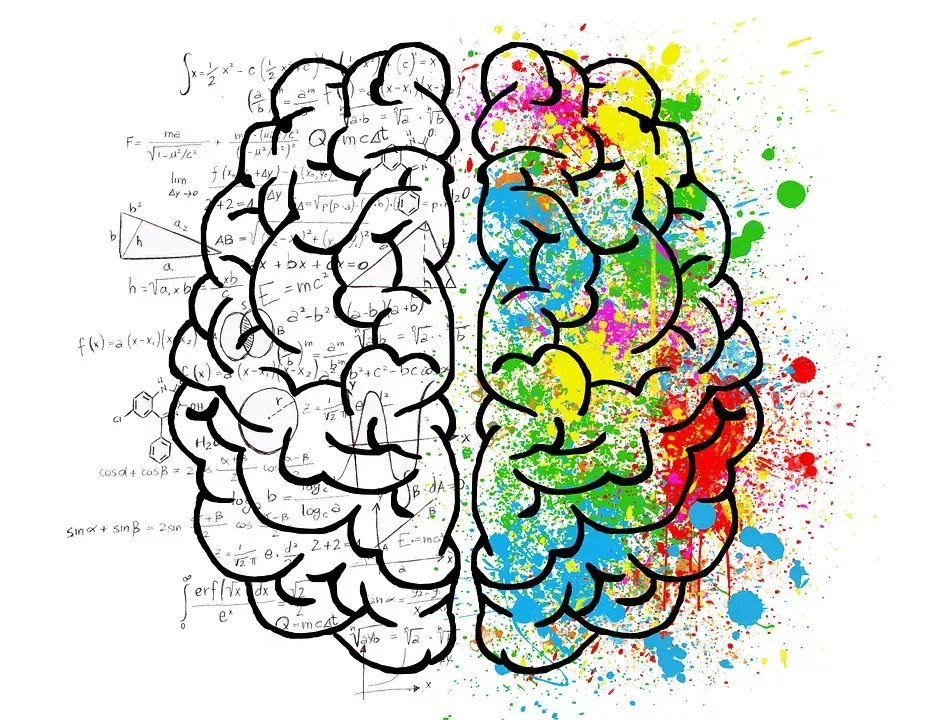El optimismo tiene muchos adeptos pero también muchos detractores,¿detractores? Sí, pero veamos el por qué de esto.
Optimism has many followers but also many detractors. Detractors? Yes, but I invite you to read on to see what I'm talking about.


Según la RAE el optimismo se puede difinir como la "propensión a ver y juzgar las cosas en su aspecto más favorable". Etimológicamente es una palabra que proviene del latín “optimuus” que se interpreta como “muy bueno” o “buenísimo”. Partiendo de esto me voy a tomar la licencia de expresarles un concepto propio de optimismo. Tomando en cuenta que juzgar es un acto propio de cada individuo, esto la convierte en una acción subjetiva resultado de nuestras interpretaciones mentales del entorno que nos rodea por tanto podría simplificar diciendo que optimismo es la capacidad de afrontar nuestro entorno de la forma más favorable para uno mismo.
According to the RAE, optimism is defined as the "propensity to see and judge things in their most favorable aspect". Etymologically it is a word that comes from the Latin "optimuus" which is interpreted as "very good" or "very good". Based on this, I am going to take the license to express my concept of optimism. Whereas judging is an act of each individual, it makes it a subjective action resulting from our mental interpretations of the environment around us. Therefore, I could simplify by saying that optimism is the ability to face our environment in the most favorable way for oneself.
Muchos catalogan el optimismo como una actitud positiva que rige nuestro comportamiento pero cuando nos concientizamos que practicamos el optimismo, éste se convierte en un sentimiento que genera otros como loa alegría, felicidad, plenitud.
Many categorize optimism as a positive attitude that governs our behavior. When we become aware that we practice optimism, it becomes a feeling that generates others, such as joy, happiness, and fulfillment.

Practicar el optimismo depende de varios factores entre ellos está la fisiología de nuestro cuerpo ya que todos tenemos concentraciones diferentes de neurotransmisores que son los responsables de cómo captamos los estímulos del medio que nos rodea. Por ejemplo una situación que puede resultar amenzante para uno para otra persona no lo es.
Practicing optimism depends on several factors. Them is the physiology of our body. We all have different concentrations of neurotransmitters. These are responsible for how we capture the stimuli of the environment around us. For example, a situation that may be threatening to you may not be threatening to someone else.
El optimismo se asume en la medida que percibimos sus beneficios y esto es un proceso paulatino. Es ir descubriendo en dosis pequeñas el resultado de ver las cosas a través de un lente positivo, sacar lo mejor de la experiencia vivida, hallar mejores formas de transitar una circunstancia si volviese a ocurrir y así generar un aprendizaje. El mayor logro del optimista es superar de forma más sencilla y menos traumática un desafío.
Por tanto no se puede tratar de vender o imponer el optimismo en los demás. Todos tenemos una curva de aprendizaje propio. Algunos aprenden copiando a los que les rodean y otros aprenden buscando sus propias vías. No olvidemos que nuestra forma de percibir los estímulos depende de nuestra fisiología o ustedes creen que el que se deprime o el pesimista ¿quieren sentirse así?
Optimism is assumed to the extent that we perceive its benefits, and this is a gradual process. It is discovering in small doses the result of seeing things through a positive lens, making the best of the experience, finding better ways to deal with a circumstance if it were to happen again, and thus generating a learning process. The achievement of the optimist is to overcome a challenge in a simple and less traumatic way.
Therefore, one cannot try to sell or impose optimism on others. We all have our learning curve. Some learn by copying those around them, and others learn by finding their way. Let us not forget that our way of perceiving stimuli depends on our physiology. Do you think that the depressed or pessimistic person wants to feel that way?

Hay muchas frases trilladas alrededor del optimismo, una de ellas es "vibrar alto", nada más falso que esto. Ser optimista no significa siempre estar riendo y brincando como si tuvieses una descarga eléctrica constante. Si haz conocido personas así seguramente también las haz visto fatigadas, deprimidas y apagadas. Esto se debe a que cada organismo está diseñado para producir químicamente una cantidad de energía para mantener en equilibrio todos sus sistemas. ¿Sabías que cada persona produce el equivalente a 100 vatios de energía? Producir menos energía apaga nuestros sistemas y por consiguiente se produce la enfermedad y producir más energía funde nuestros sistemas causando también enefermedad. Así que cuando alguien te diga "vibra alto" revisa primero si tus acciones te mantienen en un estado de baja energía. Si tus emociones y funcionamiento corporal están equlibradas tal vez aumentar "tu vibración" te sobre excite con consecuencias nefastas. La palabra clave es equilibrio.
There are many trite phrases around optimism. One of them is "vibrate high" nothing more false than this. Being optimistic does not mean always laughing and jumping up and down as if you had a constant electric shock. If you have met people like this, you have probably also seen them tired, depressed, and dull. This is because every organism is designed to chemically produce a certain amount of energy to keep all its systems in balance. Did you know that each person produces 100 watts of energy? Producing less energy shuts down our systems, and therefore disease occurs. Produces more energy, and burns our systems causing disease as well. So when someone tells you to "vibrate high", check first if your actions are keeping you in a low energy state. If your emotions and bodily functioning are in balance, perhaps raising "your vibration" will over-excite you with dire consequences. The keyword is balance.


El optimismo no es una mercancía. El optimista por lo general analiza una situación "propia" y extrae de ellas aquellos elementos que le puedan favorecer de esta manera puede afrontar mejor una circunstancia. Por tanto ese análisis no es la fórmula perfecta para todos más si no haz vivido en carne propia la experiencia de aquel que tratas de aconsejar.
Optimism is not a commodity. The optimist usually analyzes an "own" situation and extracts from them those elements that can favor can better face a circumstance. Therefore, this analysis is not the perfect formula for everyone, especially if you have not lived the experience of the person you are trying to advise.
En la universidad tuve dos amigas que eran polos opuestos. Una era excesivamente optimista y la otra muy pesimista. Un día llega una de ellas diciendo: "Qué mala suerte yo hoy me vestí con un sweter y pantalones gruesos y el clima cambió. Ahora hay un sol tan fuerte que me estoy sofocando", a lo que mi otra amiga le responde: ..."pero ve el lado positivo, hace días no sale el sol y esta es la oportunidad para que tu piel active la vitamina D que hay en ella de esta forma estás ganando salud para tus huesos". Por el amor de Dios... ¿cómo se puede tratar de vender una visión optimista a alguien que tiene urticaria por la lana irritando su piel y transpira de forma continua hasta sentirse fatigada? Es muy cómodo ser optimista con una camisa ligera y bebiendo una limonada helada bajo tremendo calorón. Este tipo de optimismo suena a burla, es una cachetada. Por supuesto ambas siempre estaban confrontadas, la una no dejaba de ser "nube negra" y la otra no era nada empática, siempre vivía en su mundo rosa.
In college, I had two friends who were opposites. One was excessively optimistic and the other very pessimistic. One day one of them arrived saying: "Too bad I wore a sweater and thick pants, and the weather changed. Now the sun is so strong that I'm suffocating", to which my other friend replies: ... "but look on the bright side, the sun hasn't been out for days, and this is the opportunity for your skin to activate the vitamin D that is in it, so you are gaining health for your bones" Really?... how can you try to sell an optimistic view to someone who has hives from wool irritating her skin and sweats until she feels fatigued? It is very comfortable to be optimistic in a light shirt and drink ice-cold lemonade in the heat. This kind of optimism sounds like mockery. It's a slap in the face. Of course, both were always confrontational. One was always a "black cloud", and the other was not empathetic, always living in her pink world.


¡Indudablemente sí! pero por otros motivos de los que te imaginas.
Todos pasamos por dificultades a través de nuestra existencia. Imagina que las dificultades son como escalones que debes ir subiendo. En la medida que escalas cada uno te sientes realizado y motivado a seguir adelante tal vez sin importar que tan difícil será el próximo escalón por venir, ya que te sientes preparado para este nuevo reto. Pero no vayas a creer que los optimistas no padecen ni sufren. Sí lo hacen pero por poco tiempo y lo superan más rápido. No se quedan estancados en una situación, por el contrario buscan vías alternas para salir del embrollo y continuar.
Undoubtedly yes! But for other reasons than you might think.
We all go through difficulties throughout our existence. Imagine that the difficulties are like steps that you have to climb, every time you climb each one, you feel fulfilled and motivated to move forward, perhaps regardless of how difficult the next step will be, because you feel prepared for this new challenge. Don't think that optimists don't suffer or suffer. They do, but for a short time, and they get over it faster. They do not get stuck in a situation. On the contrary, they look for alternative ways to get out of the mess and continue.

Una práctica muy efectiva de las personas optimistas es estar conscientes de sus pensamientos y tener la habilidad de modificarlos en un tiempo corto para así actuar de manera positiva. El optimista saca provecho de las circunstancias para aprender. Por ejemplo el otro día en el automercado por equivocación compré unas arvejas amarillas. Fue una torpeza ya que siempre compro de las verdes. Al darme cuenta en casa de esta equivocación ni siquiera perdí tiempo en lamentarme. Rápidamente busqué recetas para preparar arvejas amarillas y encontré cientos de éstas que no conocía así que elegí una y me divertí aprendiendo una receta nueva y lo mejor de todo es que logré sorprender a mi familia y obtener elogios por esta nueva preparación que disfrutamos. ¿El optimista es más felíz? ¡Claro que sí! ¿Cuál fue la lección aprendida para la próxima compra? Aprendí dos cosas: Debo fijarme bien antes de tomar un paquete de arvejas y si no hay arvejas verdes, cualquier otra leguminosas es buena para realizar nuevas preparaciones 😃😃😃
A very effective practice of optimistic people is to be aware of their thoughts and have the ability to modify them in a short time to act positively. The optimist takes advantage of circumstances to learn. For example, the other day at the grocery store, I mistakenly bought some yellow peas. It was a clumsy mistake since I always buy green peas. When I realized this mistake at home, I didn't even waste time regretting it. I quickly searched for recipes to prepare yellow peas and found hundreds of them that I didn't know. I chose one and had fun learning a new recipe, and I managed to surprise my family and get compliments for this new preparation that we enjoyed. Is the optimist happier? Of course, he is! What was the lesson learned for the next purchase? I learned two things: I must look carefully before taking a package of peas, and if there are no green peas, any other legume is good to make new preparations 😃😃😃😃😃


Tener una actitud positiva de manera repetida convierte al optimismo en hábito y nos hace llevar la vida más relajada. ¡Ojo dije relajada! no dije color de rosa, ya que no hay situaciones perfectas pero la mayoría de éstas no podemos convertirlas en una carga. Mientras más rápido superemos una circunstancias podemos subir de nivel. Estoy complemente convencida que transitamos la vida con el fin de lograr aprendizajes que nos conduzcan a una plenitud infinita más allá de nuestra existencia física.
Si practicamos el optimismo con empatía podemos convertirlo en un sentimiento contagioso, es decir que otro lo quiera adoptar de forma espontánea al verte tranquilo y feliz. Puedes dar un consejo pero hazlo cuando te lo soliciten. Muchas veces el ejemplo es la mejor forma de ganar adeptos hacia el optimismo.
Having a positive attitude repeatedly turns optimism into a habit and makes us lead a more relaxed life. I said relaxed! I did not say rosy life. There are no perfect situations, but most of them we cannot turn into a burden. The faster we overcome a circumstance we can move up a level. I am completely convinced that we go through life to achieve learning that will lead us to infinite fulfillment beyond our physical existence.
If we practice optimism with empathy, we can turn it into a contagious feeling, that is to say, that others will want to adopt it spontaneously when they see you calm and happy. You can give advice but do it when you ask for it. Often the example is the best way to gain followers towards optimism.

No debemos olvidar que la queja es una acción opuesta a ser optimista, por tanto cada vez que vayas a verbalizar una queja frena un momento y reorganiza tu expesión y verás que salen cosas buenas. Te comparto una queja que transformé en un pensamiento y acción positiva. La queja: "Comenzó a llover y no podré ir al parque, qué fastidio" sin embargo inmediatamente la cambié a: "Comenzó a llover y es la oportunidad de prepararme un chocolate caliente y saciar el antojo que tengo desde hace días". No ocurre de la noche a la mañana pero podemos entrenar a nuestra mente para lograrlo.
Si en algún momento sientes que te envuelve el pesimismo detente a analizar qué tipo de pensamientos estás generando, si éstos son positivos y negativos. Si son negativos activa el "interruptor" para cambiarlos a positivos y verás de a poco que generarás sentimientos bonitos a los cuales te acostumbrarás y los querrás hacer parte de tu vida de forma permanente con beneficios para tu salud mental y física.
We must not forget that complaining is the opposite action of being optimistic, so every time you are going to verbalize a complaint, stop for a moment and reorganize your expression, and you will see those good things will come out. I share a complaint that I transformed into a positive thought and action. The complaint: "It started raining, and I won't be able to go to the park, what a bummer". I immediately changed it to: "It started raining. It's the opportunity to prepare a hot chocolate and satisfy the craving I've had for days". It doesn't happen overnight, but we can train our minds to achieve it.
If at any time you feel that pessimism surrounds you, stop to analyze what kind of thoughts you are generating. If they are negative, activate the "switch" to change them to positive. You will see that little by little you will generate beautiful feelings which you will get used to. You will want to make them part of your life permanently with benefits for your mental and physical health.

Después de leer todas estas líneas ¿Te consideras optimista? o ¿comenzarás a entrenar a tu cerebro para serlo?
After reading all these lines, do you consider yourself an optimist, or will you start training your brain to be one?

Thanks for reading. See you in a future post!

